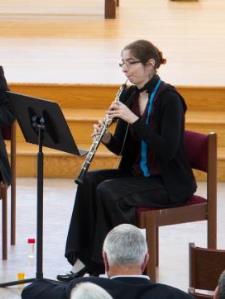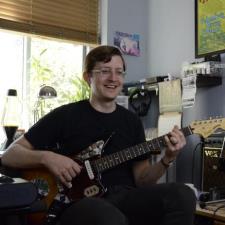
Tegan S. answered • 03/26/19
Experienced Woodwinds, Piano and Accordion Teacher
The answer is Yes and No. It is easy to get locked into a specific mindset when studying theory, although the longer you study the more different modes of analysis you learn and work with, so that can be less of an issue. But much of early theory work is taught as Rules That Must Be Obeyed when writing or creating, and it can be hard to break your brain of THAT habit.
On the other hand, it's incredibly difficult to do anything in music without knowing WHY things are working. That is what theory is at it's heart: this piece of music works, but why? How can you consistently create a great improv solo without understanding what's going on?
I've never heard that about conductors, but honestly I wish I had fewer violinists and more theorists! Many of the violin conductors I've had don't seem to understand how wind instruments work.
The other side of learning theory as the Big Bad is that so many genres and areas of music pride themselves on being self taught and not out of books. So there's a, I hesitate to say class issue, but it reads as that, with people being theoretically good at a genre versus functionally good at a genre. Kinda slides along with aphorisms such as Those Can't Do, Teach. But I've found that great musicians of all genres are pretty comfortable with understanding the insides of the music they play. What is that, if not theory? Also, any number of musicians find their theory class to be hard, much the same as a math class, and that colors their opinion.
I hope this helped. It's an interesting question.






Karen M.
When you get down to it, there is basically 2 ways of teaching music: by sight or by ear. Most Western methods are taught by sight. Whatever one starts in is the one that you tend to be the best in, though an excellent teacher would teach at least some of both. Theory does allow one to understand the structure of music and how things are put together better, especially as you get more advanced, it also allows a person to become more independent and figure out new music for themselves, which is really nice. I tell my beginning students that at the beginning, theory is what you need to read the music, as you get more advanced, theory will allow you to understand the structure of the music better so that you can learn the pieces quicker and it allows you to better understand the different styles and modes over time so that they can be played more correctly. It's also critical to writing more complex music. Playing by ear does allow one to compose melodies more quickly and to improvise more easily by following the traditional patterns of that style. Of course, one must be very familiar with the style and have listened to and played it a lot. Jazz is an example of a style that really leans on by ear playing. True Jazz means that no song is ever played exactly the same twice. It is a constantly improvised and revised. In teaching, I find that many transfer students were taught to read music by using tricks like Every Good Boy Does Fine. The problems with tricks is that the multiple rules are frequently mixed up and it makes seeing how the notes fit together in logical style, just like the keyboard layout, difficult to see and understand, and thus memorize and play by intervals between notes. Furthermore, these tricks don't apply to ledger line notes, so when a student gets to them, it's a whole new set of rules instead of just more of the same old thing extended. Sincerely, Karen A M. Beginning Piano Studio Phoenix, AZ07/18/20